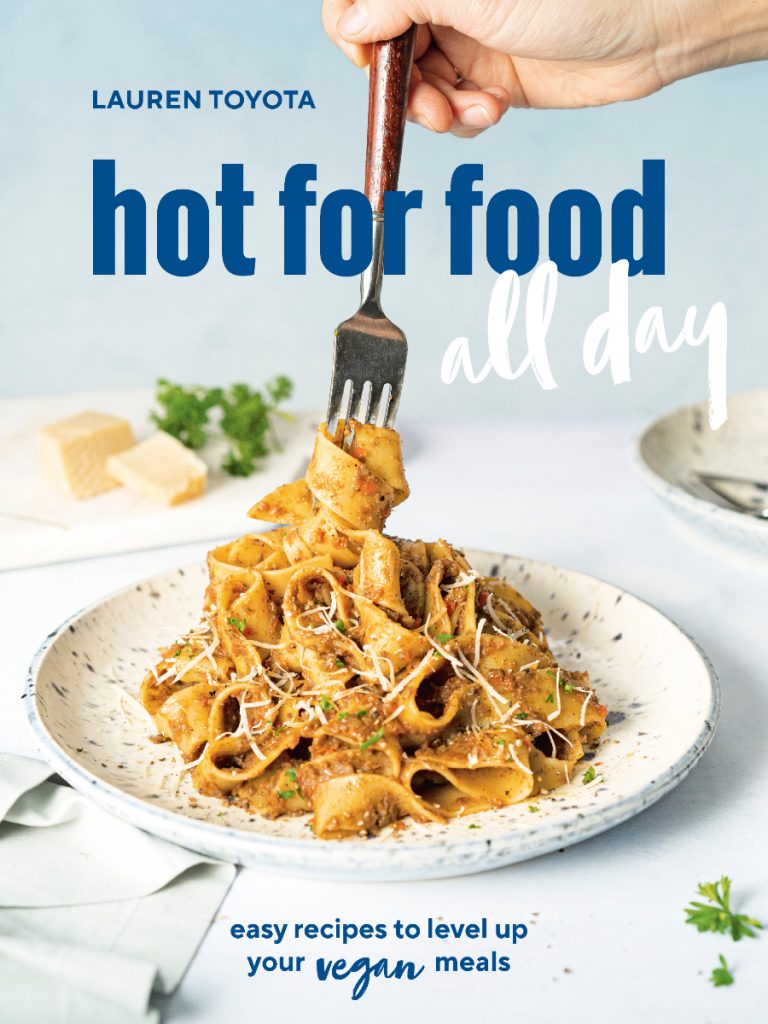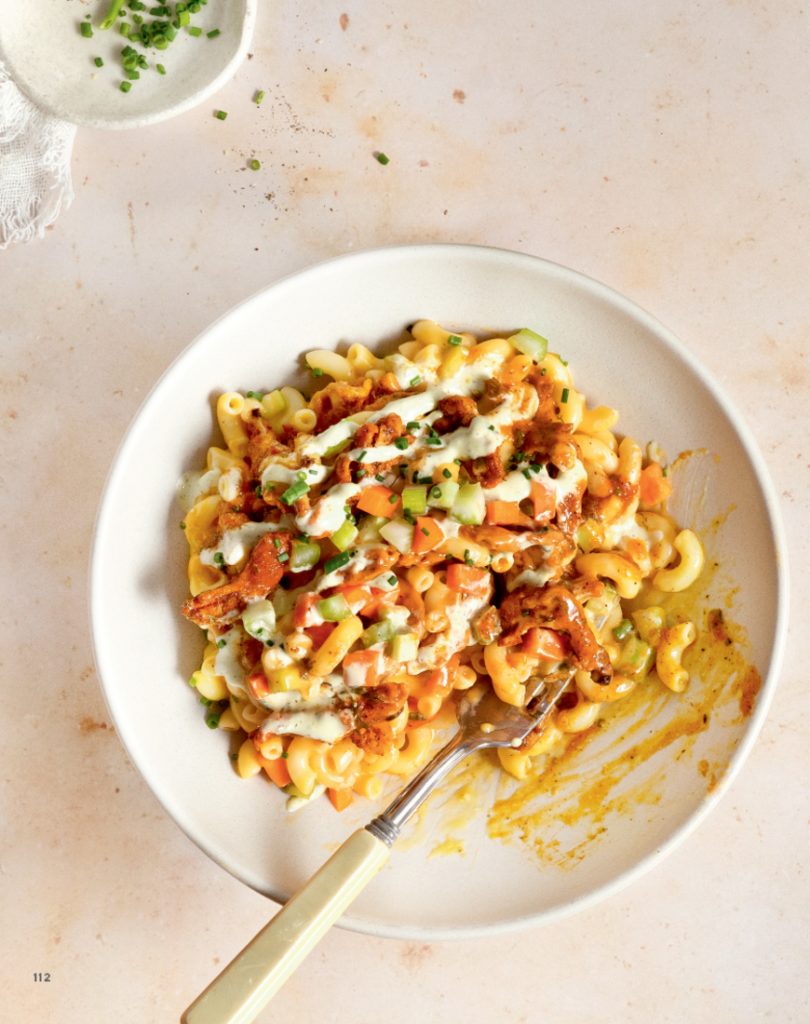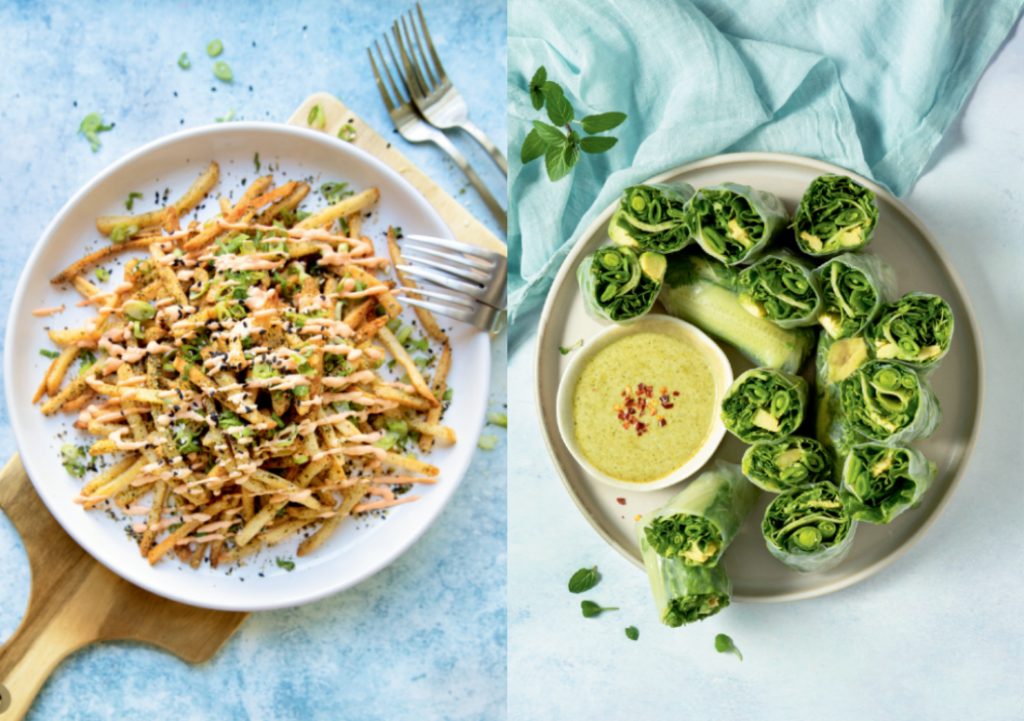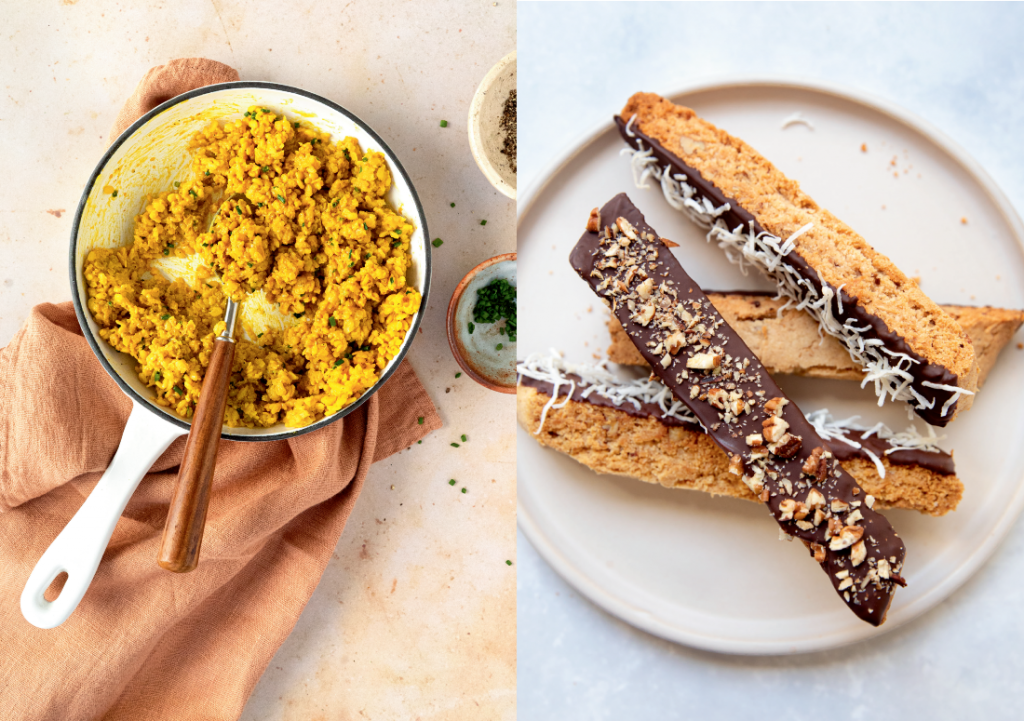Food & Drink
Lauren Toyota’s Vegan Pantry Staples
The Canadian foodie’s new cookbook, hot for food all day, dropped on March 16.
by : Patricia Karounos- Mar 17th, 2021

Lauren Toyota
What makes a vegan comfort dish? Pretty much the same components that make up the non-vegan comfort meals we know and love. “Vegan comfort dishes should hit all the marks. They should have a little fat, a little salt, a little sugar – they’ve got to touch down on all those points on the tongue,” says vegan food writer and YouTuber Lauren Toyota. “You should also have an emotional or nostalgic connection to them, whether they remind you of something from your childhood, something that your mom made you, or something that just makes you feel cozy, safe and happy.”
If there’s anyone who’s equipped to talk about vegan comfort foods, it’s the Canadian, who made a name for herself sharing her gourmet recipes on her blog and YouTube channel, both called hot for food. Her debut cookbook, Vegan Comfort Classics: 101 Recipes to Feed Your Face, became an instant bestseller when it hit shelves in 2018. And when came the time to work on the follow up, Toyota didn’t feel the need to switch things up dramatically. “I think I’m good at what I do. People love comfort food, and they love the ease and the inventiveness of my recipes, so I wouldn’t want to reinvent the wheel,” she says. “But I was ambitious with my first book, showcasing popular comfort foods and restaurant-worthy dishes. For my second book, I wanted to make things a little simpler and provide more points of entry for people.”
 Lauren Toyota
Lauren ToyotaThe result is hot for food all day, out on March 16. Toyota calls it a companion piece to her first book, both of which she hopes become “vegan bibles” for readers. Whereas Vegan Comfort Classics builds a strong foundation for plant-based cooking, hot for food all day provides quick and easy recipes that aim to become go-tos in your repertoire but still pack an impressive amount of flavour. Throughout the book, Toyota also offers up “Level Up” tips, suggesting ways to reinvent recipe leftovers into a different dish — one of her personal faves, for example, is taking her one-pot mac n’ cheese and turning it into, say, a spicy Buffalo chicken mac ‘n cheese.
 Lauren Toyota
Lauren ToyotaAnd if there’s anything a good cook knows, it’s that you need to have a well-stocked kitchen, whether you’re cooking a dish from scratch or elevating last night’s leftovers. Here, Toyota shares her must-have vegan pantry staples.
The Essential Spices
“It’s important to stop with the flavouring [products], the things that you’re actually going to use time and time again to inject flavour into food,” Toyota explains. “Having a good spice pantry is important because you’re trying to take bland vegetables, or tofu, or whatever and make it taste like meat.” These are dried spices — black pepper, ground ginger, basil, onion powder and chili powder, just to name a few — that should always be stocked in any kitchen, regardless of your diet.
 Lauren Toyota
Lauren ToyotaThe Flavour Boosters
Items like soy sauce or tamari, miso paste, Dijon mustard and tomato paste are helpful to have to give dishes more complex flavour profiles. “These things create a well-rounded flavour wheel,” Toyota says. “They’ll help add umami, acidity and really enhance flavours in sauces, dressings and marinades. I use these ingredients in a lot of different recipes – they don’t have just one purpose.” The Canadian adds that capers, bouillon cubes or paste, and condiments like curry paste that have super concentrated flavours function in a similar way. “It’s good to have those things in your fridge because they last forever and you’ll use them time and time again.”
The Quick and Easy Go-Tos
Grains and legumes are a staple in any pantry, and Toyota finds herself always reaching for some lentils or rice when she’s in a pinch. “Canned or dried lentils are the quickest thing to cook,” she says. “I even get quick-cooking rice because I don’t like waiting 40 minutes for rice to cook. Quinoa is also really great because it takes only about 10 minutes.”
 Lauren Toyota
Lauren ToyotaThe Niche Ingredient
“I tell everybody to have nutritional yeast in their pantry, no matter what, because you’ll for sure find it in vegan cooking, but most people aren’t exposed to it until they start Googling recipes,” Toyota says of the powdery substance that’s often used in plant-based cheese dupes. “It is a natural flavour enhancer in general and it has no adverse effects on the body because it’s an inactive yeast. I usually use it as a seasoning or an addition to blended sauces or dips.”
Read more:
Eat Pie for Breakfast!
Mixtrology: The Best Mocktail for Your Zodiac Sign
15 Essentials Needed to Stock a Non-Alcoholic Bar Cart
Newsletter
Join our mailing list for the latest and biggest in fashion trends, beauty, culture and celebrity.
Read Next

Fashion
This Canadian Swimwear Brand Designed Canada’s 2024 Women’s Olympic Beach Volleyball Team Uniforms
And they're *so* good.
by : Allie Turner- Apr 24th, 2024
Fashion
The Most Iconic Looks In Met Gala History, From 1973 To Now
40 years of the night that's all about trailblazing fashion.
by : ELLE Australia- Apr 24th, 2024

Culture
This University Elevates Women to New Professional Heights
You shouldn’t have to pause your life to move forward in your career.
by : ELLE Canada- Apr 16th, 2024



